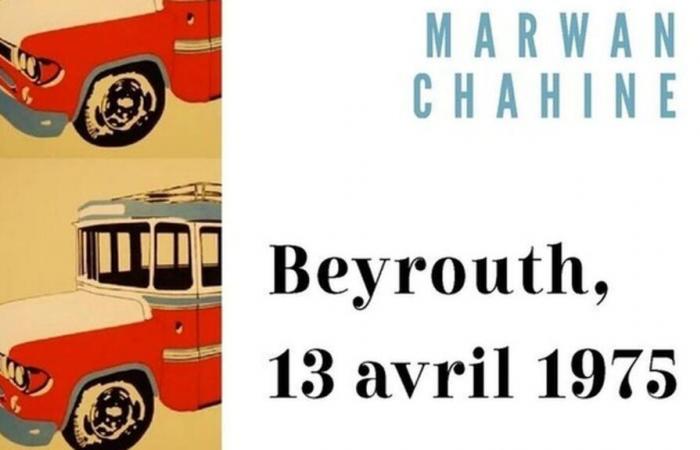
With Beirut: April 13, 1975, autopsy of a spark, This is an astonishing book brought to us by Marwan Chahine, a former journalist. His story is both a personal story about his origins, his parents are Lebanese. It is also a journalistic investigation and its impasses, or even a philosophical quest on truth or forgetting.
Marwan Chahine spent almost 10 years to produce this book, which came to him almost by chance. When, leaving for Lebanon to write fiction, he found himself faced with this event, the Palestinian bus targeted by Christian militiamen on April 13, 1975, an event considered to trigger, as the start of the Lebanese civil war.
Marwan Chahine sought to reconstruct in the smallest detail what really happened. But at the same time, he wonders: why this event and not another? In a country and at a time where violence was already daily? The investigation was delicate. Many did not want to remember exactly. Chahine met dozens and dozens of witnesses, witnesses to the tragedies and atrocities committed, but also actors in this civil war. With one observation: the truth is unstable in this country which has not chosen to look its past in the face.
And for good reason, some of the actors in this war are still in power today in Lebanon, and still with these same troublesome neighbors, Syria and especially today Israel. The book is fascinating, written with great sensitivity, and it reads almost like a police investigation, like a thriller.
On this same civil war in Lebanon: No enemy like a brother by Frédéric Paulin at Agullo
And this is a true detective novel. No enemy like a brother, it is the story of the civil war in Lebanon between 1975 and 1989. It is the first novel in a trilogy. There will be two more. The ambition is to understand history and especially these black holes, to find truths sometimes forgotten or hidden, or even falsified by official discourse. No enemy begins on April 13, 1975, with this attack on the Palestinian bus that Marwan Chahine tells us about.
Frédéric Paulin writes dark novels which always use History as raw material. His only fantasy is fictional characters who mingle with very real characters, to guide us through these adventures. The novel ends on the tragic day of October 23, 1983, when two suicide attacks, almost simultaneously, struck American and French soldiers of the multinational security force.
Everything is very documented, written with great precision, but it is also spectacular, absolutely captivating. The second volume of the trilogy is due out in February.





